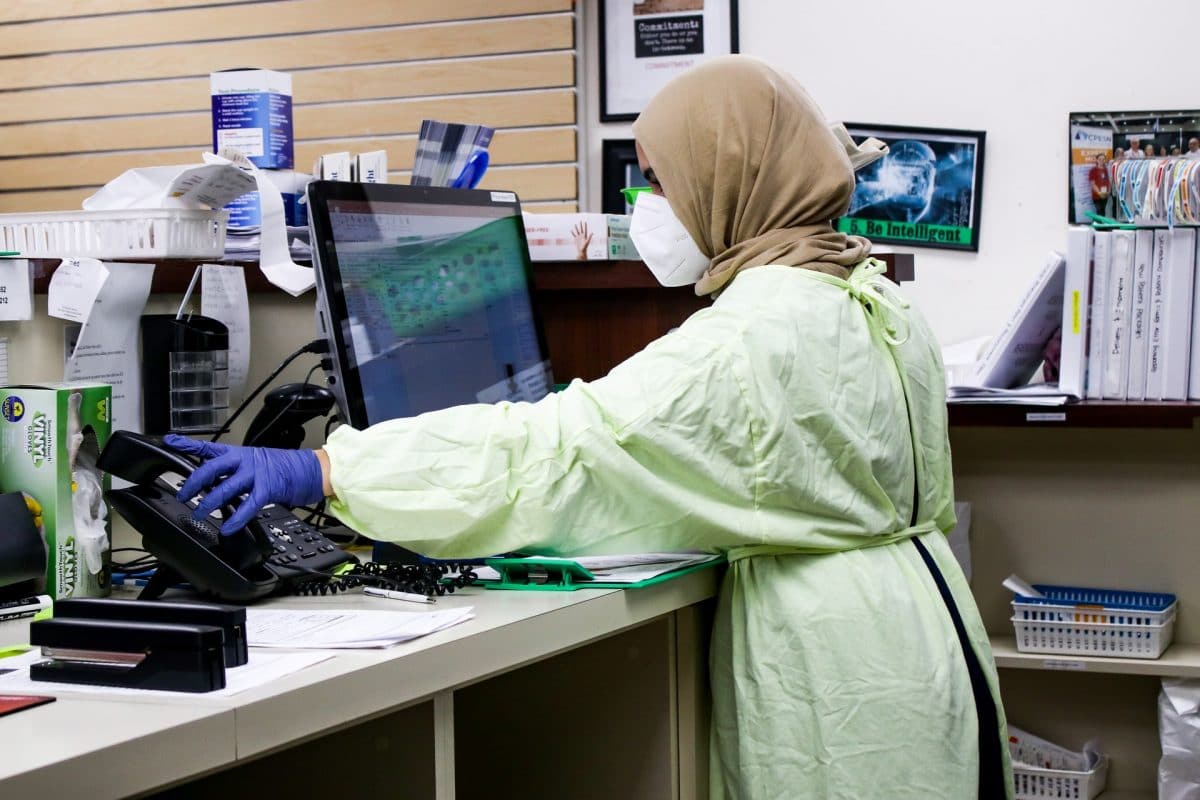
How Georgetown University Medical Center rode the pandemic wave
Linda Van Keuren, assistant dean for resources and access management explains why the Georgetown University Medical Center library moved from IP-based access to OpenAthens single-sign on and the benefits that brought; including helping the center to ride the Covid-19 pandemic wave.
Challenge
In 2016, Dahlgren Memorial Library at Georgetown Medical Center moved from an IP based access solution to OpenAthens single sign-on.
The library supports schools of nursing, medicine, health and biomedical graduate education at Georgetown University as well as a cancer center and hospital. All of them need to be able to connect into the university remotely. The students and medical staff also use point of care tools that they often need to access at the bedside of their patients.
“They need access very quickly to items especially when it comes to patient care,” says Linda Van Keuren, assistant dean for resources and access management at Georgetown University Medical Center. “And they need it provided in the simplest way possible because they need to get to it very quickly.”
OpenAthens single sign-on had the potential to provide this simplicity.
Solution
“We had a number of reasons why we wanted to make this move,” says Linda. “We provide resources and services aimed at improving the user experience. Our goal is to integrate resources right at the user point of need.”
OpenAthens offered the integrated, streamlined access that the library needed. It also brought security benefits.
“We wanted to protect access not only to library resources but to the range of institutional services,” explains Linda. “Access tied to identity and not IP addresses provided a higher level of security, particularly since, at that time there were a few ‘open’ computers available in the library that could be used without additional authentication.”
Linda also thought that OpenAthens would help the library improve its acquisitions model. Prior to 2016, she says:
We had been purchasing for the entire campus. So even very highly specialized clinical journals and ebooks were available to everyone on campus. In order to act as better stewards of the funds, we wanted to limit those clinical resources to the medical center community rather than provide to the entire IP range of the campus.
Benefits and results
Streamlined user experience
“What we've seen since we implemented OpenAthens in 2016 is a much more streamlined access experience for our users,” says Linda.
“We've been able to add Lean Library which helps with the access to full text resources. We also promote the use of the SeamlessAccess button to patrons. All these added tools wouldn't have been possible without OpenAthens and single sign-on. We’ve seen fewer pain points over the years.”
What we've seen since we implemented OpenAthens in 2016 is a much more streamlined access experience for our users. When our users log into library resources they're using the same credentials they use for everything else on campus.
OpenAthens now ties together the systems the library has to allow users to access content and has simplified user authentication. “When our users log into library resources they're using the same credentials they use for everything else on campus.”
Security
The university information systems department vetted OpenAthens to make sure that their practices fell within university security and data management policies. “It passed with flying colours,” says Linda.
Security has been strengthened by tying access to the user and not the IP address of the hospital or university.
We really appreciate that OpenAthens supplements the security provided by the university information systems team. Excessive downloads or security issues can be investigated more quickly as we are not working with a broad IP range but specific accounts.
Data insights
The aggregated anonymous data OpenAthens provides has also proved useful. “We use the OpenAthens statistics frequently. It informs our library staff on how our resources are being used. We rely on it for making collection management decisions and for having funding discussions. Now I can say with certainty how specific platforms are being used and by what type of user.”
The decision to move to OpenAthens single-sign on also helped ease the transition to remote learning that affected all libraries during the pandemic. Because all OpenAthens services are in the cloud, there was nothing hosted on campus and staff had the equipment they needed to work remotely.
“Covid showed us that we could pretty quickly pivot to support our users when they're remote and we're remote.”
Lessons learned
Moving to OpenAthens was a big project. “We knew it would be a slow migration,” says Linda. “We weren't trying to do it all at once.”
When access was IP based, some patrons were not aware of their university logins.
“The move to OpenAthens was a good opportunity for us to help educate users about their credentials. Since we had made the change to OpenAthens prior to the pandemic, they already knew their credentials when we all moved to a virtual environment, ” says Linda.
Making this successful change involved a partnership with the university IT department, as well as OpenAthens and their business partners TDNet. “A lot of people were involved. It was definitely a team effort.”
Picking a long time business partner like TDNet to help us with the transition was integral to the success of the transition. We could not have done it without TDNet's expertise and support.
